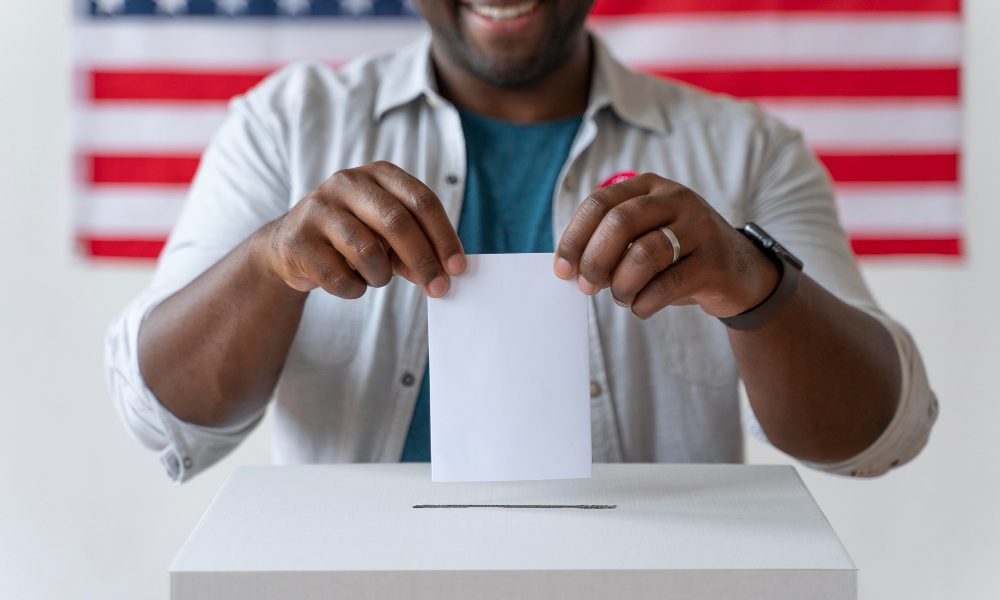
Why the Secret Ballot is Paramount in American Elections

In the heart of democratic processes, the secret ballot emerges not only as a method but as a fundamental right that protects the individuality and confidentiality of voters. Originating from the “Australian Ballot,” introduced in 1856, this system ensures that Americans can vote in privacy without fear of retaliation or coercion. The importance of such a system cannot be overstated, especially in an era where voter privacy is increasingly under threat.
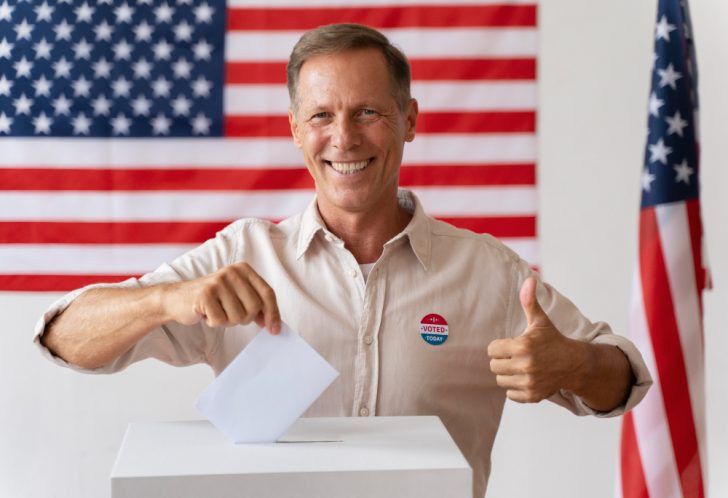
Image by Freepik | Originating from the “Australian Ballot,” introduced in 1856, this system ensures that Americans can vote in privacy without fear of retaliation or coercion.
What Is the Secret Ballot?
The secret ballot, as we understand it in American elections, guarantees that individuals can enter the voting booth, make their choices, and leave without any record of their decisions being publicly available. This privacy is critical in enabling voters to express their true political preferences without pressure from outside influences. By safeguarding voter anonymity, the secret ballot helps maintain the integrity and fairness of the electoral process.
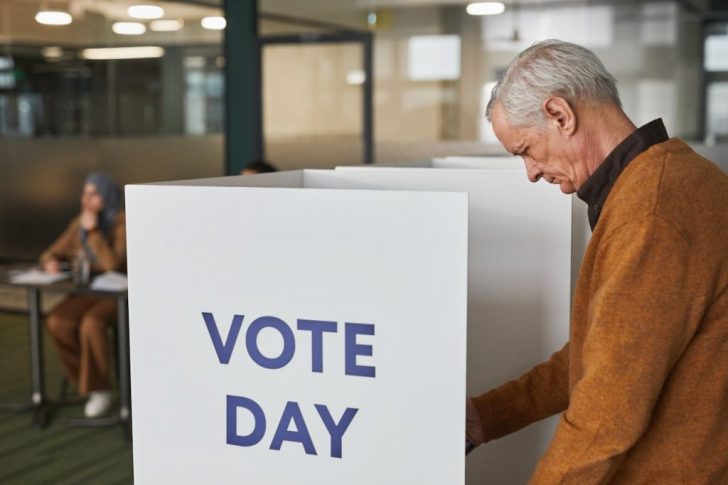
Edmond Dantès | Pexels | The secret ballot guarantees that individuals can enter the voting booth, make their choices, and leave without any record of their decisions being publicly available.
Recent Challenges to the Secret Ballot
However, recent incidents highlight growing vulnerabilities. A notable case in Texas revealed the limitations in the current system where the supposed secrecy of ballots was compromised. The revelation of Matt Rinaldi’s voting details initially claimed to be for Donald Trump but actually for Ron DeSantis, underscores a disturbing potential for privacy invasion. This incident sparked a controversy and raised questions about the robustness of the protections around voter secrecy.
The methods used to expose Rinaldi’s vote suggest that ballots tied to unique identification numbers are susceptible to being traced back to individual voters. This breach of privacy is particularly alarming because it demonstrates that even high-profile individuals are not immune to such risks. If a chairman’s vote can be traced and publicly disclosed, the average voter may question the confidentiality of their ballot as well.
The Implications of Compromised Ballot Secrecy
The ramifications of such breaches extend beyond mere privacy concerns; they touch on the public’s trust in the electoral system. When voters believe that their choices might not remain confidential, they might be deterred from voting altogether or swayed to vote against their genuine preferences to avoid potential backlash. This erosion of trust is detrimental to the democratic fabric of society.
In regions like Texas, where these issues have come to light, there is an urgent need for stringent measures to protect the secret ballot. While state laws exist to safeguard voter privacy, their effectiveness is only as good as their enforcement. These laws fail to serve their purpose without rigorous application and timely action in cases of violations.
The Way Forward
Election officials and lawmakers must address these vulnerabilities head-on to restore confidence in the electoral process. Strengthening the mechanisms that ensure the secrecy of the ballot is a start, but more proactive steps are needed. This includes revising current laws and adopting new technologies that enhance security without compromising privacy.
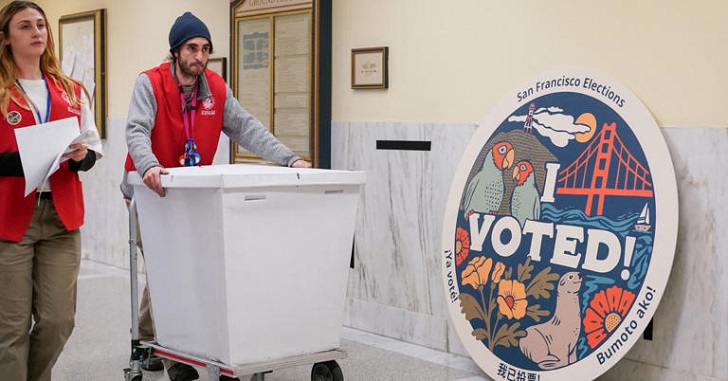
Sean Conlon | MSN | Election officials and lawmakers must address these vulnerabilities head-on to restore confidence in the electoral process.
Investigations into incidents like Rinaldi’s are essential to holding individuals accountable and deterring future breaches. Public awareness and education about the importance of the secret ballot can also play a significant role in upholding its sanctity. Voters must be reassured that their right to a private vote is both a theoretical assurance and a practical reality.
The secret ballot is more than a procedural formality; it is a cornerstone of democratic freedom. As challenges to voter privacy emerge, it is the responsibility of every stakeholder in the electoral system to ensure that this cornerstone is not eroded. The future of American democracy may well depend on our ability to protect this fundamental right.
More in Business
-
`
The Push for Tax-Free Tips in America – A Win or a Risk?
Tipping has long been a fundamental part of the American service industry, providing essential income for millions of workers. However, the...
February 20, 2025 -
`
Matthew Perry Foundation Launches Addiction Fellowship at MGH
The impact of addiction on individuals and families is profound, and the need for specialized medical care in this field has...
February 13, 2025 -
`
Celebrity Couples Who Have Ended Their Relationships in 2025
2025 has already seen its fair share of celebrity breakups, and the year is just getting started. From heartfelt announcements to...
February 6, 2025 -
`
How Trump’s Policies Will Reshape Artificial Intelligence in the U.S.
The United States witnessed a significant political shift as Donald Trump took the presidential oath once again. His return to the...
January 31, 2025 -
`
Millie Bobby Brown Shuts Down Age-Shamers with a Powerful Message
From the moment Millie Bobby Brown first appeared as Eleven in “Stranger Things,” she captured hearts worldwide. But growing up in...
January 25, 2025 -
`
Why Outsourcing Payroll Services Is a Smart Business Move
Managing payroll is no small task—it’s a crucial part of any business that ensures employees are paid accurately and on time....
January 15, 2025 -
`
These AI Stocks Should Be on the Watch List of Investors in 2025
The buzz around AI stocks is growing louder than ever. With artificial intelligence shaping industries like healthcare, finance, and tech, smart...
January 8, 2025 -
`
Why the Starbucks Workers Strike Is Expanding Across U.S. Cities
The Starbucks workers’ strike has gained significant momentum, with employees in more U.S. cities joining the movement to address unresolved issues...
January 2, 2025 -
`
Are Shawn Mendes and Camila Cabello Still Close After Breakup?
The connection between Shawn Mendes and Camila Cabello continues to intrigue fans worldwide. Their shared history, from chart-topping collaborations to a...
December 24, 2024

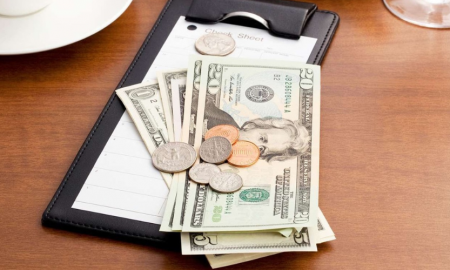








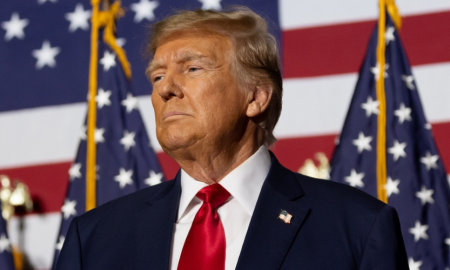
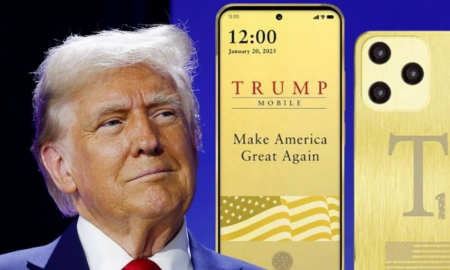



You must be logged in to post a comment Login